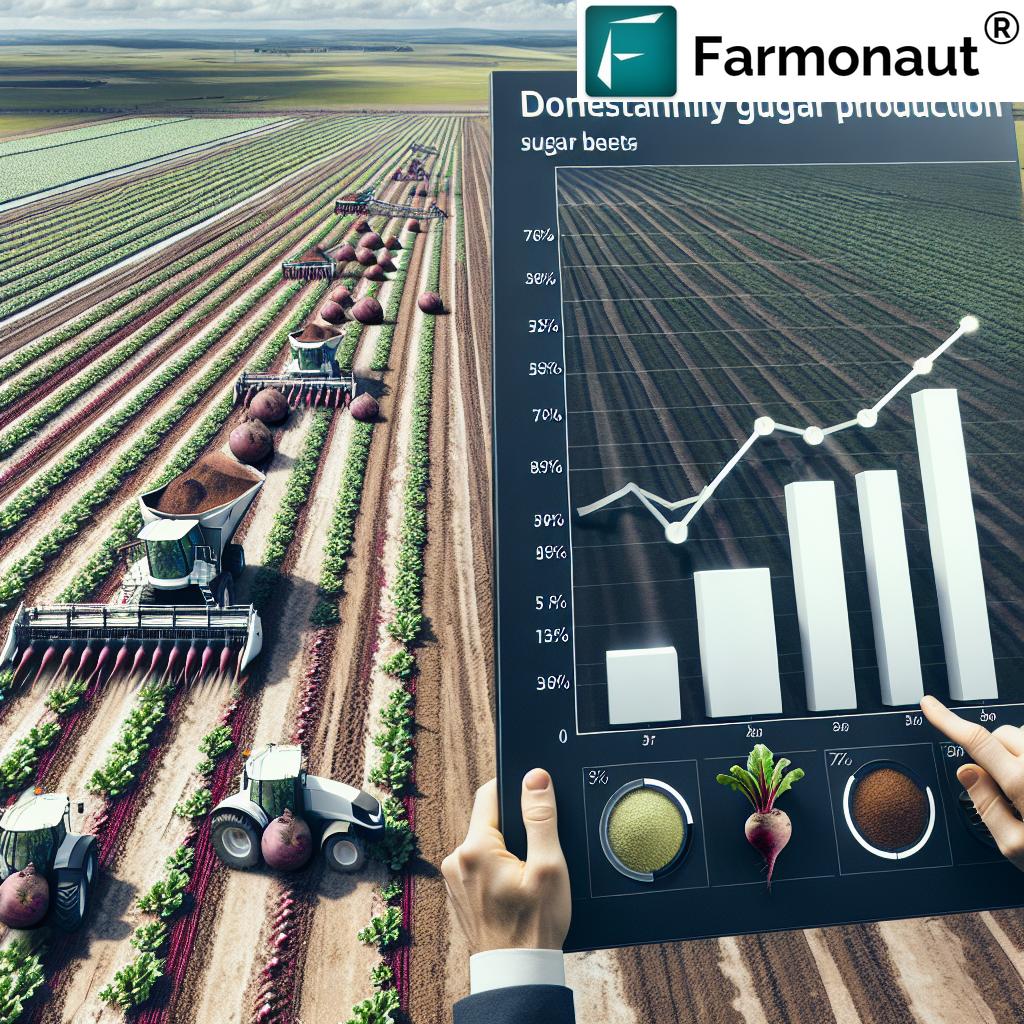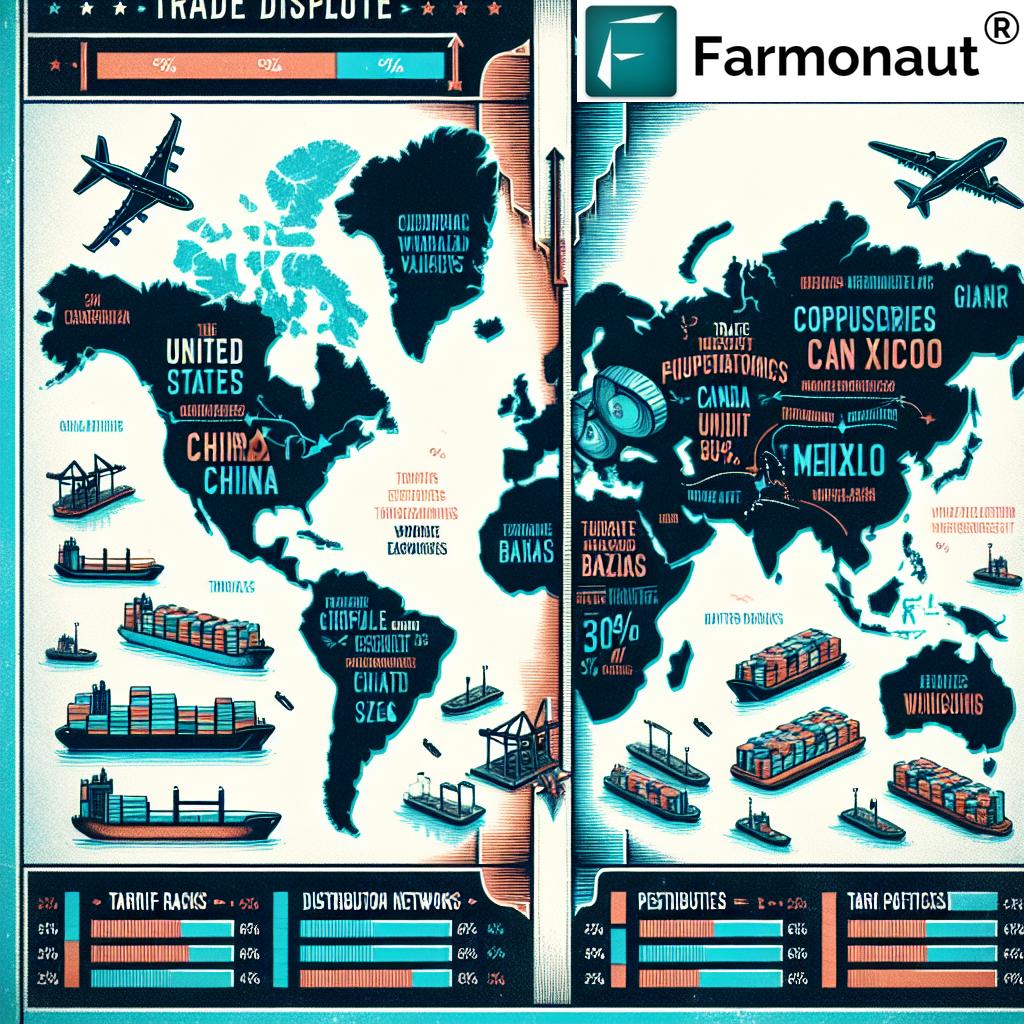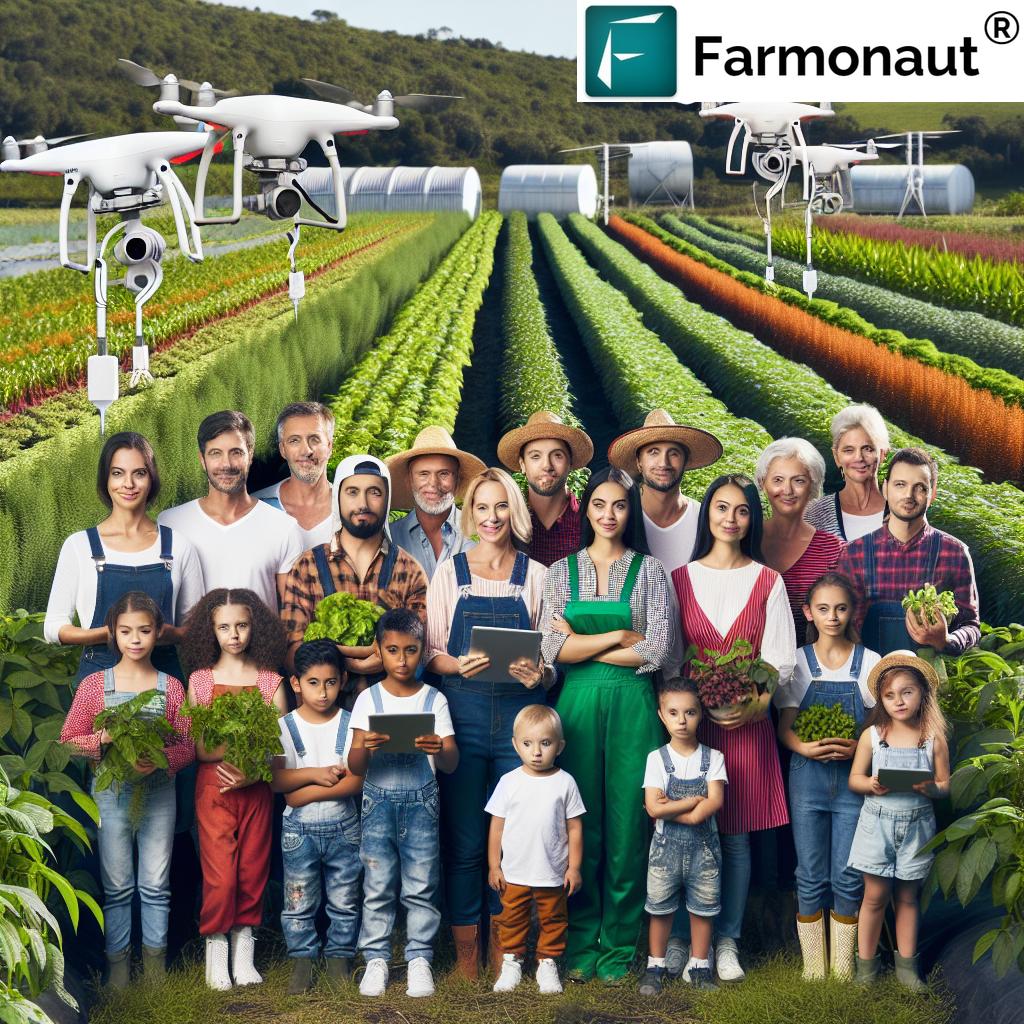Breakthrough: Moldova’s Egg-cellent EU Export Revolution Hatches New Agricultural Era
Moldova’s agriculture sector is celebrating a momentous achievement as the country takes a significant leap forward in its poultry industry. The George Standard factory has become the first in the nation to receive authorization for EU egg exports, marking a turning point for Moldova’s agricultural landscape and its relationship with the European Union.
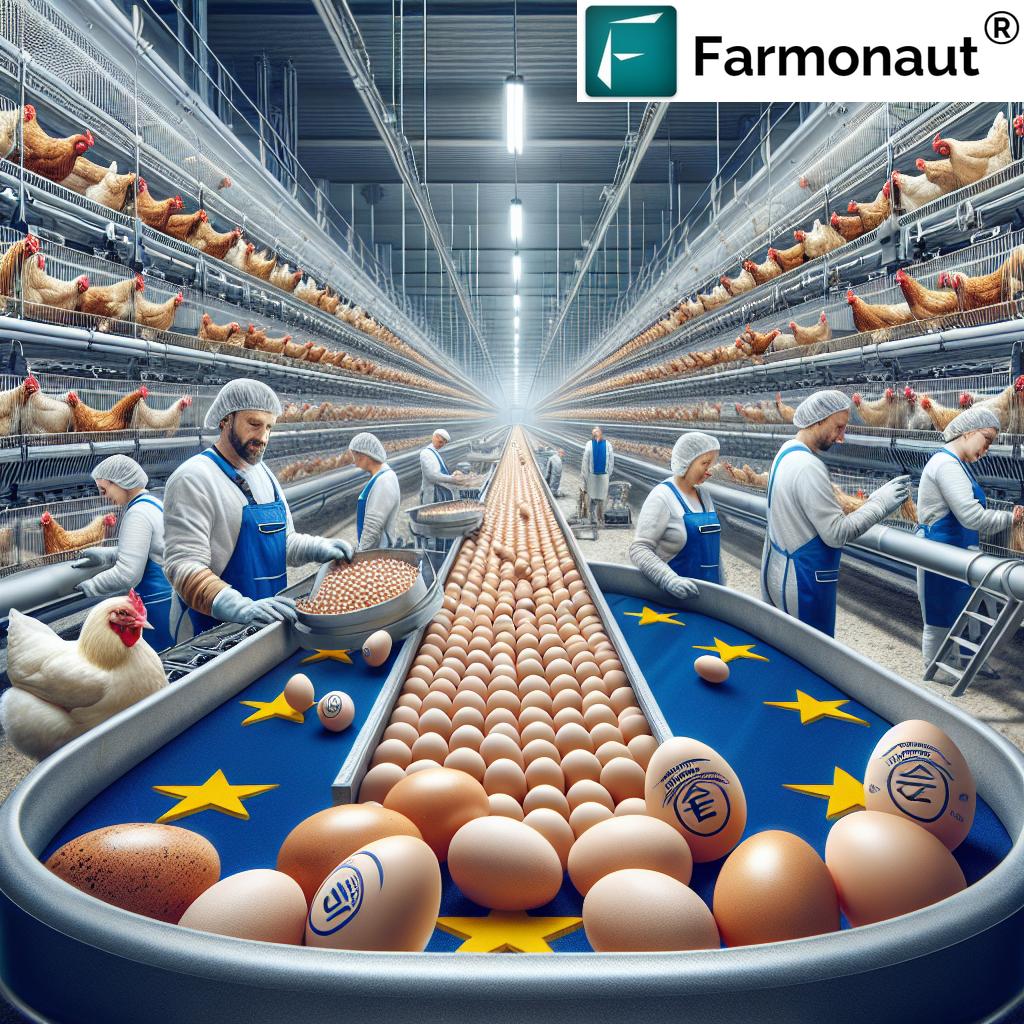
Moldova EU Egg Export Breakthrough: A Game-Changer for Agriculture
The Moldova EU egg export breakthrough represents a watershed moment for the country’s agricultural sector. This achievement is not just about eggs; it symbolizes Moldova’s commitment to modernizing its agriculture and aligning with international standards. The authorization of the George Standard factory to export eggs to the EU market opens up a world of opportunities for Moldovan poultry export and sets a new benchmark for quality and safety in the industry.
Prime Minister Dorin Recean’s recent visit to the George Standard factory underscored the government’s support for this milestone. During his visit, Recean emphasized the importance of this achievement, stating, “This is a significant step forward for our agricultural sector and our relationship with the EU. It demonstrates our ability to meet the highest standards of food safety and quality.”
Moldovan Poultry Industry EU Standards: Raising the Bar
The journey to this Moldova agricultural export revolution has been paved with dedication and hard work. The Moldovan poultry industry EU standards compliance has been a key factor in this success. These standards cover various aspects of poultry farming, including:
- Animal welfare
- Feed quality
- Disease control measures
- Hygiene practices
- Environmental sustainability
By adhering to these stringent European poultry standards, Moldova has not only improved the quality of its poultry products but also positioned itself as a reliable partner in the global food supply chain.
George Standard Factory: Pioneering EU Authorization
The George Standard factory EU authorization is a testament to the facility’s commitment to excellence. This state-of-the-art factory has implemented cutting-edge technologies and rigorous quality control measures to ensure that its products meet and exceed EU requirements.
Some key features of the George Standard factory include:
- Advanced egg sorting and grading systems
- Stringent biosecurity measures
- Regular quality control checks
- Sustainable waste management practices
- Traceability systems for each egg produced
These features have not only enabled the factory to secure EU authorization but also set a new standard for Moldovan egg production.
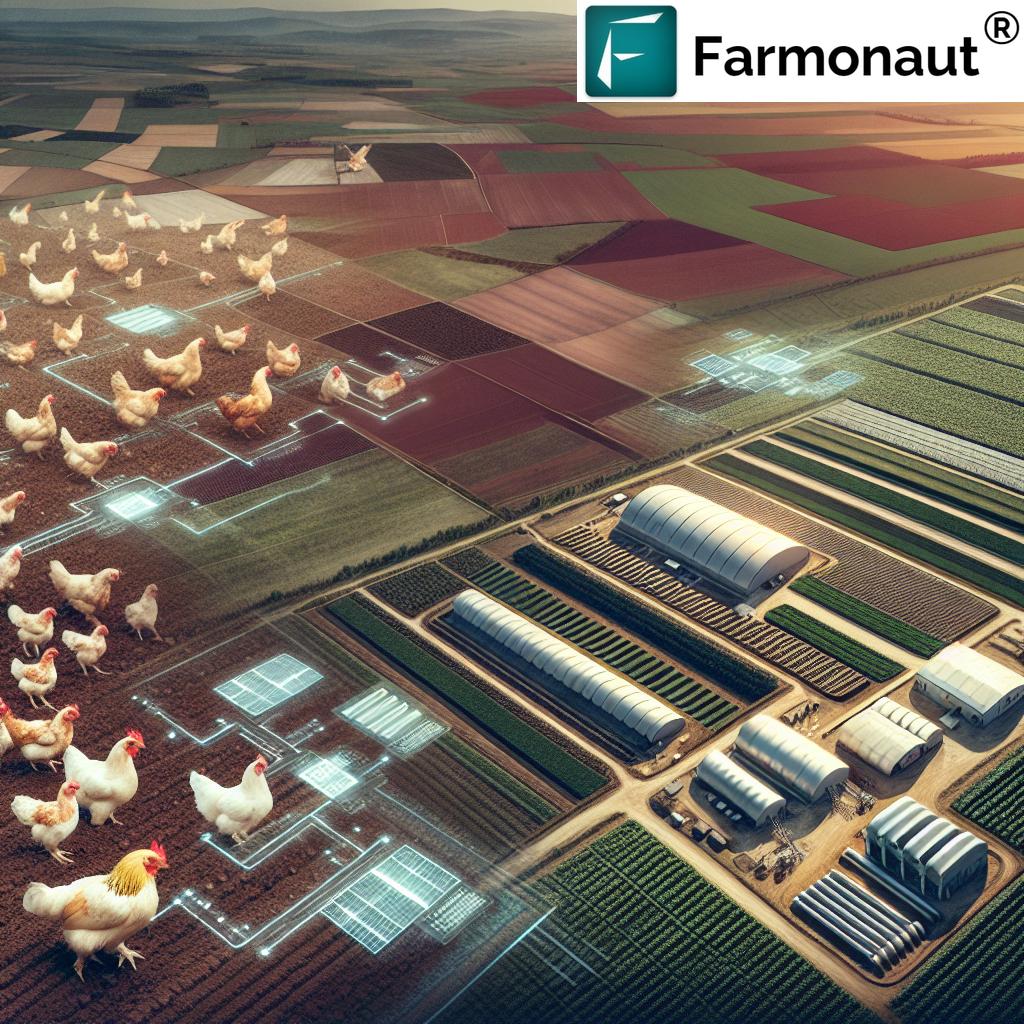
Moldovan Egg Production EU Market: Expanding Horizons
The authorization to export eggs to the EU market opens up new vistas for Moldovan egg production. With access to a market of over 450 million consumers, Moldovan egg producers now have the opportunity to significantly expand their operations and boost their revenues.
This breakthrough is expected to have a ripple effect across the entire poultry industry Moldova. As more producers strive to meet EU standards, the overall quality of Moldovan poultry products is likely to improve, benefiting both domestic consumers and international trade partners.
For farmers looking to leverage this opportunity and optimize their poultry operations, tools like Farmonaut’s satellite-based farm monitoring system can be invaluable. This technology allows for precise monitoring of farm conditions, helping to ensure optimal production while meeting stringent EU standards.
Moldova Poultry Sector Modernization: A Path to Prosperity
The EU export authorization is both a result and a catalyst of the ongoing Moldova poultry sector modernization. This process involves several key aspects:
- Upgrading infrastructure in Moldovan chicken farms
- Implementing advanced technologies for egg production and processing
- Training farmers and workers in EU-compliant practices
- Strengthening the supply chain from farm to export
- Enhancing quality control and certification processes
These modernization efforts are transforming the landscape of Moldova agriculture, making it more competitive on the global stage.
Sustainable Poultry Farming Moldova: Balancing Growth and Responsibility
Sustainable poultry farming Moldova is at the heart of this agricultural revolution. As the sector grows, there’s an increased focus on environmentally friendly practices. This includes:
- Efficient use of resources
- Reduction of carbon footprint
- Implementation of circular economy principles
- Promotion of animal welfare
Farmers can leverage advanced technologies like those offered by Farmonaut’s API to monitor and optimize their farm operations, ensuring sustainability while meeting production goals.
Avicola Factory: A Case Study in Success
The Avicola factory in Corlateni serves as an excellent example of the potential within Moldova’s poultry sector. Producing over 100,000 eggs daily, this facility demonstrates the capacity of Moldovan producers to meet both domestic and international demand.
The success of the Avicola factory and others like it is crucial for maintaining a steady supply for both local consumption and EU egg export. As more facilities upgrade to meet EU standards, Moldova’s position in the global egg market is set to strengthen significantly.
Moldova EU Trade: Strengthening Economic Ties
The authorization for egg exports is expected to bolster Moldova EU trade relations significantly. This development comes as part of a broader trend of increasing agricultural exports from Moldova to the EU, facilitated by various trade agreements and partnerships.
As Moldova continues to align its agricultural practices with EU standards, more sectors are likely to gain export authorization, further diversifying the country’s export portfolio and strengthening its economic ties with the EU.
The Future of Moldovan Poultry Export
The future looks bright for Moldovan poultry export. With 43 poultry breeding facilities and 227,000 private households raising nearly 6 million birds, the sector has significant room for growth. As more producers adopt EU-compliant practices, Moldova’s share in the European egg market is expected to grow substantially.
This growth is likely to attract further investment in the sector, leading to more job creation and economic development in rural areas. It also positions Moldova as a key player in ensuring food security in the region.
For those interested in staying updated on the latest developments in agriculture and technology, consider downloading the Farmonaut app:
Conclusion: A New Chapter in Moldova’s Agricultural Story
The authorization of egg exports to the EU marks the beginning of a new chapter in Moldova’s agricultural story. It represents not just a breakthrough for the poultry industry, but a model for other agricultural sectors to follow. As Moldova continues to modernize its agriculture and align with international standards, it is poised to become a significant player in the European food market.
This achievement is a testament to the hard work and dedication of Moldovan farmers, the vision of policymakers, and the country’s commitment to quality and sustainability. As Moldova hatches this new era of agricultural excellence, the world watches with anticipation for the next big breakthrough from this small but ambitious nation.
For more information on how technology can support agricultural development, visit Farmonaut’s API Developer Docs.







